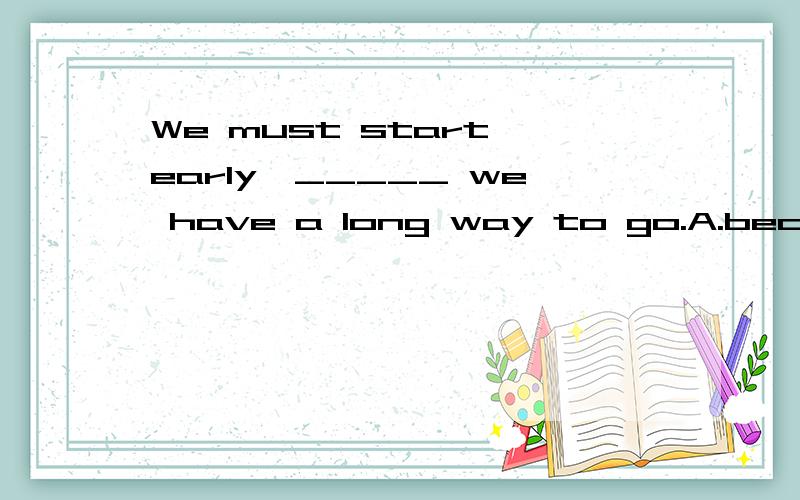We must start early,_____ we have a long way to go.A.because B.since C.for D.while 应
来源:学生作业帮助网 编辑:作业帮 时间:2024/11/20 04:33:44

We must start early,_____ we have a long way to go.A.because B.since C.for D.while 应
We must start early,_____ we have a long way to go.A.because B.since C.for D.while 应
We must start early,_____ we have a long way to go.A.because B.since C.for D.while 应
C更为确切
[辨析]since,because,for 词语辨析
because表示原因的语气最强,常表示必然的因果关系,从句是全句的重心,它引导的从句一般放在主句的后面;回答以why引起的特殊疑问句,只能用because.如:
He is absent today because he is ill.
他今天缺席,因为他病了.
—Why didn't he come?
—他为什么没来?
—Because he had an important meeting to attend.
—因为他有个重要的会议要参加.
since意为“既然”,表示对方已经知晓,无需加以说明的原因或事实(有时为天经地义的事实或格言、谚语等),语气比because稍弱,全句重点落在主句上.如:
I'll do it for you since you are busy.既然你忙,我来替你做吧.
for是并列连词,它的语气最弱,常用来补充说明理由或提供一种解释.它引导的句子不能放在句子的开头.如:
We must leave now,for the film begins at seven.我们得走了,因为电影七点钟开始放映.
B
C
C